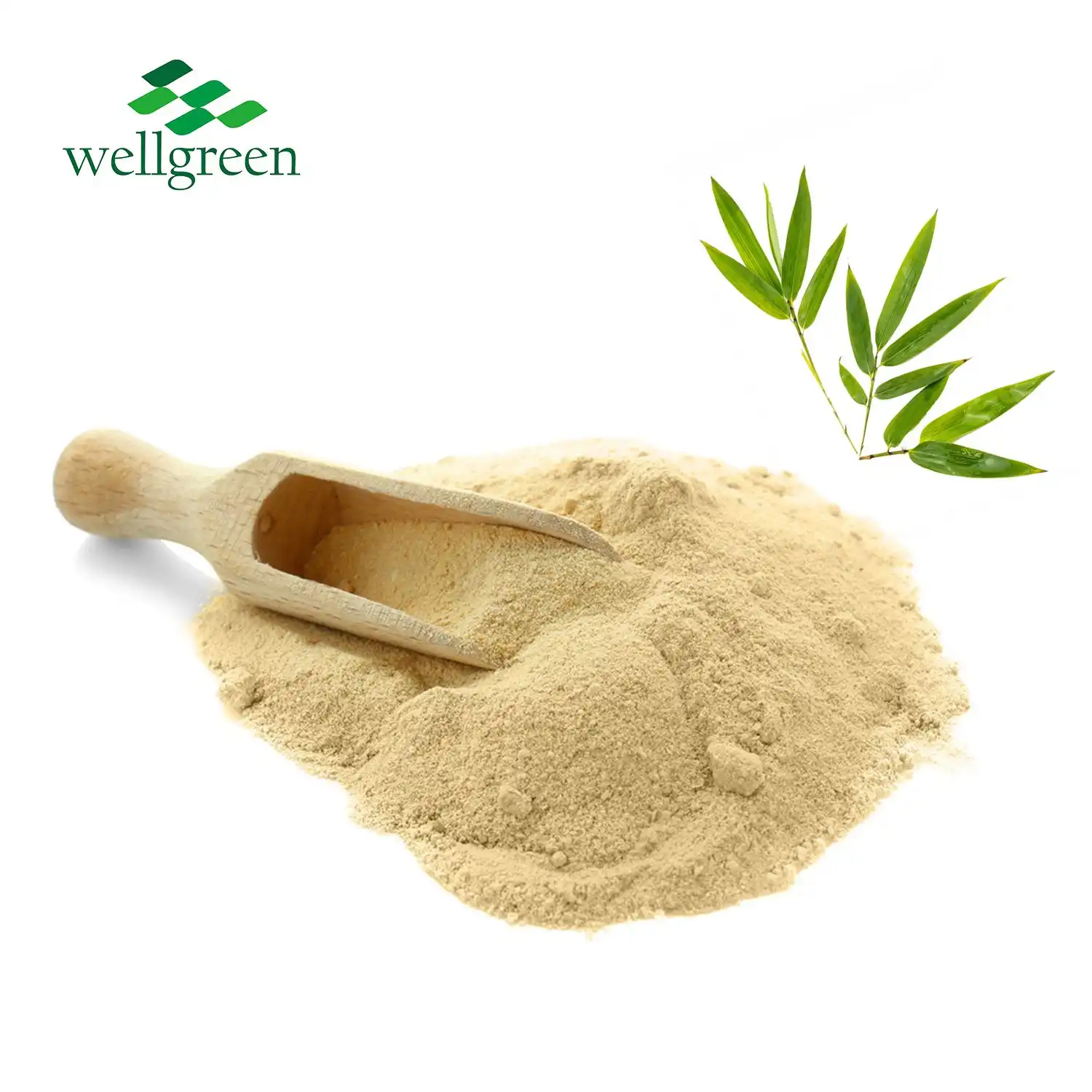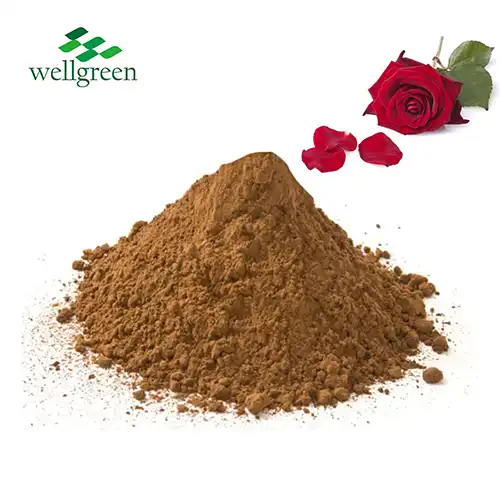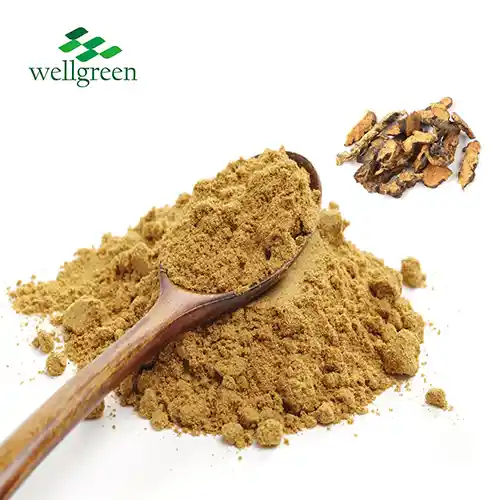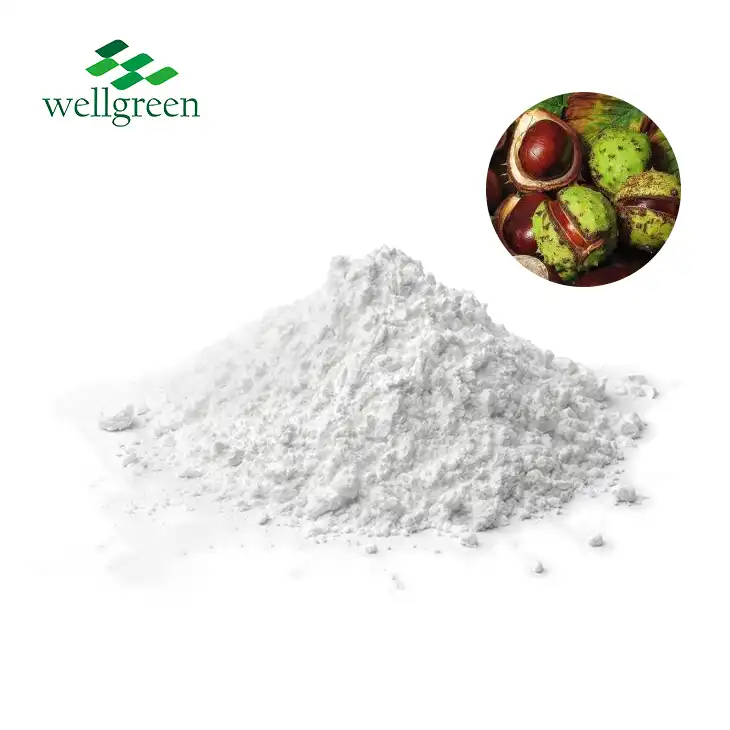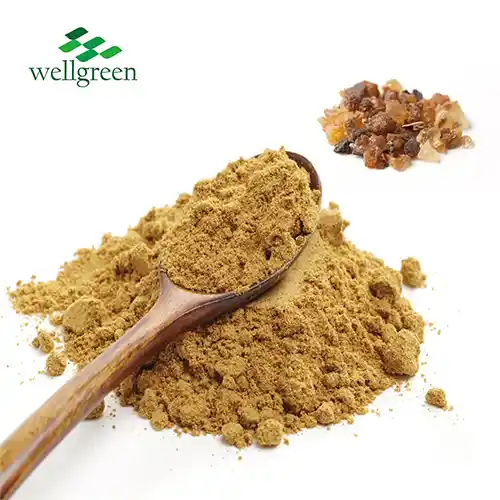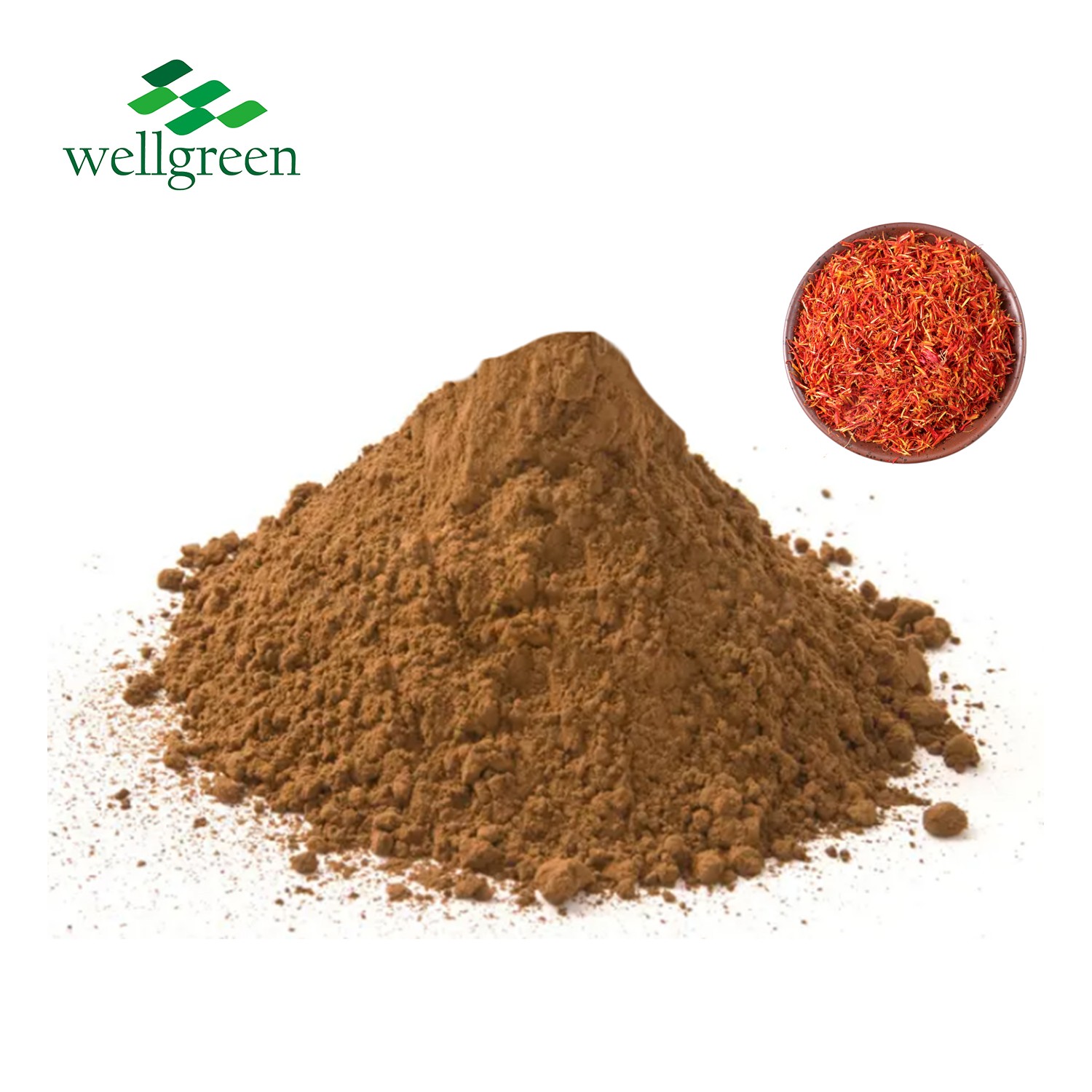How Does Apigenin Powder Work as an Antioxidant?
2025-09-25 15:21:35
Apigenin powder, a potent flavonoid derived from various plants, exhibits remarkable antioxidant properties that contribute significantly to overall health and well-being. As an antioxidant, apigenin powder works by neutralizing harmful free radicals in the body, protecting cells from oxidative stress, and supporting various physiological processes. Its unique molecular structure allows it to scavenge reactive oxygen species, inhibit pro-oxidant enzymes, and enhance the body's natural antioxidant defense mechanisms. By combating oxidative damage at the cellular level, pure apigenin powder helps maintain cellular integrity, promotes healthy aging, and supports optimal functioning of vital organs and systems throughout the body.

What Is the Antioxidant Mechanism of Apigenin?
Molecular Structure and Antioxidant Activity
Apigenin's antioxidant mechanism is rooted in its unique molecular structure. The flavonoid contains multiple hydroxyl groups and a double bond in its C-ring, which allows it to effectively scavenge free radicals. These structural features enable apigenin to donate hydrogen atoms or electrons to unstable molecules, neutralizing their harmful effects. The presence of conjugated double bonds in apigenin's structure also contributes to its ability to stabilize free radicals through electron delocalization.
Enzyme Inhibition and Antioxidant Enhancement
Beyond direct free radical scavenging, apigenin powder exerts its antioxidant effects by inhibiting pro-oxidant enzymes and enhancing the activity of antioxidant enzymes. It has been shown to suppress the production of enzymes such as xanthine oxidase and NADPH oxidase, which are responsible for generating reactive oxygen species. Simultaneously, apigenin upregulates the expression and activity of antioxidant enzymes like superoxide dismutase, catalase, and glutathione peroxidase, bolstering the body's natural defense against oxidative stress.
Metal Chelation Properties
Another crucial aspect of apigenin's antioxidant mechanism is its metal chelation properties. Certain metal ions, such as iron and copper, can catalyze reactions that produce harmful free radicals. Pure apigenin powder can bind to these metal ions, forming stable complexes that prevent them from participating in oxidative reactions. This chelation ability further enhances apigenin's overall antioxidant capacity and contributes to its protective effects against cellular damage.
Free Radical Neutralization and Cellular Protection
Direct Scavenging of Reactive Oxygen Species
One of the primary ways apigenin powder works as an antioxidant is through direct scavenging of reactive oxygen species (ROS). These highly reactive molecules, including superoxide anions, hydroxyl radicals, and hydrogen peroxide, can cause significant damage to cellular components if left unchecked. Apigenin's chemical structure allows it to donate electrons or hydrogen atoms to these unstable molecules, effectively neutralizing them and preventing them from causing oxidative damage to lipids, proteins, and DNA.
Lipid Peroxidation Inhibition
Apigenin plays a crucial role in protecting cellular membranes by inhibiting lipid peroxidation. This process, in which free radicals attack and degrade lipids in cell membranes, can lead to membrane dysfunction and cellular damage. Pure apigenin powder interrupts the chain reaction of lipid peroxidation by scavenging lipid peroxyl radicals and donating hydrogen atoms to stabilize these reactive species. By preserving the integrity of cellular membranes, apigenin helps maintain proper cell function and prevents oxidative stress-induced cellular death.
DNA Protection and Repair Mechanisms
The antioxidant properties of apigenin extend to protecting DNA from oxidative damage. Free radicals can cause DNA strand breaks, base modifications, and other forms of genetic damage that may lead to mutations and cellular dysfunction. Apigenin powder not only scavenges free radicals that could potentially harm DNA but also enhances the activity of DNA repair enzymes. By supporting these repair mechanisms, apigenin helps maintain genomic stability and protects cells from the long-term consequences of oxidative DNA damage.
Supporting Overall Health Through Oxidative Stress Reduction
Cardiovascular Health Benefits
The antioxidant effects of apigenin powder contribute significantly to cardiovascular health. By reducing oxidative stress in blood vessels and heart tissue, apigenin helps maintain endothelial function and prevents the oxidation of low-density lipoproteins (LDL). This action may lower the risk of atherosclerosis and other cardiovascular diseases. Additionally, apigenin's ability to modulate inflammatory responses and improve lipid profiles further supports heart health, potentially reducing the risk of hypertension and other cardiovascular complications.
Neuroprotective Effects
The brain is particularly vulnerable to oxidative stress due to its high oxygen consumption and lipid content. Pure apigenin powder exerts neuroprotective effects by combating oxidative damage in neural tissues. Its antioxidant properties help preserve cognitive function, protect against neurodegenerative diseases, and may even support neuroplasticity. By reducing oxidative stress in the brain, apigenin contributes to maintaining mental acuity and potentially slowing age-related cognitive decline.
Anti-Inflammatory and Immune-Modulating Properties
Oxidative stress and inflammation are closely linked, often exacerbating each other in a vicious cycle. Apigenin's antioxidant activity helps break this cycle by neutralizing free radicals that can trigger inflammatory responses. Furthermore, apigenin modulates the expression of pro-inflammatory cytokines and enzymes, contributing to a balanced immune response. This dual action of reducing oxidative stress and modulating inflammation supports overall immune function and may help in managing chronic inflammatory conditions.
Conclusion
Apigenin powder stands out as a powerful antioxidant with multifaceted mechanisms of action. Its ability to neutralize free radicals, protect cellular components, and support the body's natural antioxidant defenses makes it a valuable ally in promoting overall health and well-being. By combating oxidative stress at various levels, from direct scavenging to enhancing enzymatic defenses, apigenin contributes to cardiovascular health, neuroprotection, and immune system balance. As research continues to unveil the full potential of this remarkable flavonoid, apigenin powder emerges as a promising natural compound for those seeking to optimize their antioxidant intake and support long-term health.
Contact Us
Are you looking for high-quality apigenin powder for your products? Xi'an Wellgreen Technology Co., Ltd. is a leading manufacturer and supplier of plant extracts and natural organic powders. With our state-of-the-art GMP-certified facility, extensive inventory, and commitment to quality, we offer premium pure apigenin powder to meet your needs. Contact us at wgt@allwellcn.com to learn more about our apigenin powder and other plant extract products—partner with Xi'an Wellgreen for reliable, high-purity ingredients that can elevate your formulations.
References
1. Salehi, B., et al. (2019). The Therapeutic Potential of Apigenin. International Journal of Molecular Sciences, 20(6), 1305.
2. Yan, X., et al. (2017). Antioxidant Activities and Antitumor Screening of Extracts from Cranberry Fruit (Vaccinium macrocarpon). Journal of Agricultural and Food Chemistry, 65(23), 4760-4767.
3. Nabavi, S. F., et al. (2018). Apigenin and Alzheimer's Disease: An Update. Naunyn-Schmiedeberg's Archives of Pharmacology, 391(9), 937-949.
4. Madunić, J., et al. (2018). Apigenin: A Dietary Flavonoid with Diverse Anticancer Properties. Cancer Letters, 413, 11-22.
5. Shankar, E., et al. (2017). Plant Flavone Apigenin: An Emerging Anticancer Agent. Current Pharmacology Reports, 3(6), 423-446.
6. Ferreira, P. S., et al. (2020). Antioxidant Activity of Flavonoids and Their Synergistic Interaction Against Reactive Oxygen and Nitrogen Species. Molecules, 25(16), 3651.

